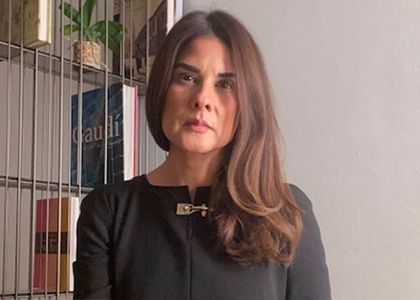
Por Rocío Correa

Murió, murió, si, si, murió se escuchaba comentar entre los que compartían mesa en la sala lounge del aeropuerto Marco Polo de Venecia. A las 9:30 de la mañana de ayer
12 de junio murió en el hospital San Raffaele de Milán, Silvio Berlusconi quien guió por cuatro veces el gobierno italiano; la fecha quedará escrita en los libros de historia. El líder del partido político Forza Italia y fundador de la cadena televisiva Mediaset tenía 86 años.
Escribo textual un pequeño extracto de lo que reportaba en su página web el diario italiano Il Corriere della Sera al momento de la noticia de sus muerte:“Si se tuviera que hacer la anatomía de un instante, en la extraordinaria vida de Silvio Berlusconi, quizá se debería elegir la noche del 8 de noviembre 2011. No el día en que puso la primera piedra en una construcción, en Brugherio, en 1964, o fundó la “Fininvest”, en 1975, abriéndose la vía de un imperio televisivo y financiero que lo convirtió en uno de los hombres más ricos del mundo, ni en el día en que bajó al campo de la política. Ni aquella vez que bajó en helicóptero al campo de la Arena para inaugurar la epopeya del Milán, que ganó cinco Champions y ocho escudos en 31 años.No. Berlusconi se ha tomado tanto de aquel poder en su vida, que el verdadero “magic moment” para contar, es aquel en que lo ha perdido”.
Las cosas estaban así: Italia iba en picada a causa del ataque de los mercados financieros por la deuda pública. Spread de más de 500 puntos. Merkel y Sarkozy que se reían en público de él. Europa que tenía miedo de caer junto con Italia. Gianfranco Fini siempre a su lado se había hecho un partido político y pasaba a la oposición. Ocho diputados, todos ex “super fieles”, traicionaban a Berlusconi en un voto decisivo, haciéndole perder la mayoría a “Montecitorio” (Cámara de diputados), pero aunque si el “Cavaliere” Como es llamado por todos Silvio Berlusconi quería resistir y no ceder, renunció aceptando la lógica inexorable de la política democrática.
Silvio ha sido una figura cómica, ridícula y exagerada, pero también un fenómeno de fuerza de voluntad y de necesidad histórica. Juntos, el fruto del mal italiano, pero al mismo tiempo su intento de curarlo. En el bien y en el mal ha sido el fundador de una nueva política, con ambición liberal y signos populistas, que ha hecho escuela en el mundo y dominado la escena italiana por veinte años aún cuando era oposición; un encantador de serpientes, un hombre de magia; no siempre muy respetado en el extranjero y en Italia una figura muy controversial.
Los profesionales del “antiberlusconi” lo han acusado de todo tipo de crímenes, casi 80 procesos con acusaciones varias, desde la prostitución de una menor de edad en la persona de Ruby Ribacuori, una de las participantes a las fiestas de chicas en las casas de Berlusconi, a la sospecha de colusión con la mafia, de todas las acusaciones salió absuelto. Para la ley de los jueces y procuradores, Berlusconi cumplió un sólo delito: fraude fiscal y fue condenado. Al final obtuvo plena rehabilitación judicial y volvió a ser candidato, ganando primero una silla en el parlamento europeo y después nuevamente en el senado.
Berlusconi representa para los italianos el mito americano del hombre que se hace por sí mismo, seduce al pueblo quitándoselo a la izquierda, desde 1994 año en que entró en política. Bien dice mi marido: “la historia cuenta que él ha interpretado primero que nadie la idea de un país nuevo, nos gustará o no su política, mientras la izquierda en todo este tiempo ha hecho política solo contra la persona”. El “Cavaliere” descubrió el cielo azul sin horizonte de los electores moderados y hostiles a la izquierda. Tenía el mal tacto de escandalizar al auditorio con declaraciones políticamente incorrectas, que daban la vuelta al mundo ¿Cómo olvidar aquella vez que se refirió a Obama como el “bronceado” refiriéndose al color de su piel?
Pero después de todo el balance final del Berlusconi político no es tan malo como sus adversarios han querido hacer ver, Berlusconi ha dejado en papel como dice el Corriere della Sera la “rivoluzione liberale”, hecha de menos impuestos y mayor crecimiento, la promesa que lo llevó al gobierno. A los 86 años soñaba todavía con poder regresar al “Quirinale” (Residencia del Presidente de la República)
En política todo está siempre por escribirse y él ha dejado una heredera en la derecha de centro para volver a ganar: Giorgia Meloni.
“Lo indecible no debe quedar en el silencio”
Rocío Correa
Las opiniones expresadas son responsabilidad de sus autoras y son absolutamente independientes a la postura y línea editorial de Opinión 51.
Más de 150 opiniones a través de 100 columnistas te esperan por menos de un libro al mes.






Comments ()